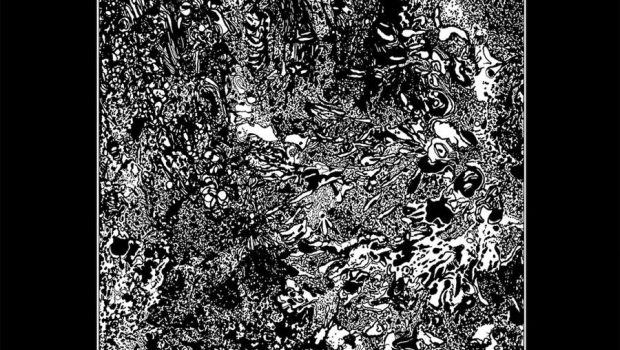 Listening to Deerhoof is the musical equivalent of watching a high-speed montage of the most physically impossible yoga positions. The tendency is to sit there thinking, “how on earth did they do that?” Free jazz drum patterns, sonic shards of guitar, oddball melodies mean that not only does each Deerhoof album sound different from previous releases, but each few seconds of every song finds them going off on a distinct tangent, discovering a new obtuse angle. Despite this variety, they are always instantly recognisable, at least in part due to vocalist Satomi Matsuzaki with her deadpan yet singsong Japanese accented voice. While astonishment at the constant shifts might be the initial reaction to a Deerhoof song, further listening invariably reveals that these constant realignments make sense and knit together in a cohesive way.
Listening to Deerhoof is the musical equivalent of watching a high-speed montage of the most physically impossible yoga positions. The tendency is to sit there thinking, “how on earth did they do that?” Free jazz drum patterns, sonic shards of guitar, oddball melodies mean that not only does each Deerhoof album sound different from previous releases, but each few seconds of every song finds them going off on a distinct tangent, discovering a new obtuse angle. Despite this variety, they are always instantly recognisable, at least in part due to vocalist Satomi Matsuzaki with her deadpan yet singsong Japanese accented voice. While astonishment at the constant shifts might be the initial reaction to a Deerhoof song, further listening invariably reveals that these constant realignments make sense and knit together in a cohesive way.
A glance at their social media pronouncements displays a band with a heroic tenacity for calling out the stupidity of the modern world and especially their American home. Notably, they have been one of the last voices for the immune suppressed and asking for masks to be worn at gigs. As a recent cancer patient and carer for an elderly parent, I am especially grateful for how they have used their voice. Even though their musical style is individualistic, they see beyond the selfish cult of the individual.
Although it is often expressed in a surreal style, there is a powerful political slant to their latest album, ‘Noble and Godlike in Ruin’. Oblique references to the immigrant experience pepper the record directly challenging the American government’s dehumanising rhetoric. The album begins with the unexpectedly restrained, atmospheric ‘Overrated Species Anyhow’. It sees Matsuzaki sending out love to all her savages, aliens and animals, reclaiming the derogatory language used to describe migrants. ‘Sparrow Sparrow’ is closer to what the devoted Deerhoof fan expects from the band: frantic shifts over its two-and-a-half-minute duration, multiple guitar riffs that run the gamut from avant-garde to 60s sunshine pop, Matsuzaki’s endearing vocals and all held together by Greg Saunier who lays reasonable claim to being the world’s greatest drummer. To the lazy ear, it could sound like a mess but is an excellent example of how the apparent sprawl is tightly structured and flows naturally.
‘Kingtoe’ has an electronic feel, albeit disrupted by piano runs and discordant guitars. Lyrically, it revels in contradictions from its opening lines: “how can you be so gloomy? / I heard the sun is out / how can you be so sunny? / I heard that gloom and doom is all about.” With its reference to requiring kindness, ‘Return of the Return of the Fire Trick Star’ which is as tricksy and awkward as its title, raises a request for generosity of spirit that recurs through the album.
‘A Body of Mirrors’ builds a wall of symphonic noise, sometimes sweetened by the multilayering of Matsuzaki’s voice. ‘Ha, Ha, Ha, Ha, Haaa’ starts out with jazz punk chords, it throws in synth lines which sound like mice scurrying in a post-apocalyptic environment, has Saunier’s drums unusually prominent in the mix and Matsuzaki describing atomic bombs as “beautiful but terrific” before gleefully repeating the word “bomb” ad infinitum before the song descends into a noise freakout. It is ridiculous in a sublime way.
The album gets its splendid title (which implies a persistence and indestructibility of spirit in the face of the brazen awfulness of the powerful but could also be interpreted as referencing the hubris of those leaders) from the ocean bound ‘Disobedience’ whose guitars run the gamut from Branca-esque to prog-like, has Matsuzaki bizarrely proclaiming “tally ho” and runs out on waves of church organ and radio noise. As the record’s shortest track, ‘Who Do You Root For?’ unsurprisingly crams in a lot from jazz-punk guitars to ferocious riffs, atonal trumpet and helicopter noise at the end.
Saul Williams, polymath and fearless commentator, guests on ‘Under Rats’ which captures the human experience from fear, loving, eating, thinking and growing through unsustainability and forests on fire, all to a suitably dramatic and varied musical palette. It is response to a world where the least empathetic gain the greatest financial rewards but finds flickers of hope (“Tell me how the trees / Long held beliefs / and all our dreams evolve / being and becoming with no end.”) The record ends with the seven-minute epic ‘Immigrant Songs’, undoubtedly a knowing reference to Led Zeppelin’s track of that name. It starts with the sweetest melody and some vaguely bossa nova style guitar while Matsuzaki delivers a parable about being the driver, baker and singer at a party and being made to feel unwelcome (“kindness is all I needed from you / but you think we’re in your house / you are mistaken.”) To borrow the parlance of football punditry, it is very much a song of two halves. The second part sounds like My Bloody Valentine have commandeered heavy industrial machinery and are cranking up as much volume as possible. While it is musically a less pleasurable experience, it could mirror how the immigrant experience has turned increasingly sour.
Diving into ‘Noble and Godlike in Ruin’ brings to mind John Peel’s remarks about The Fall, “always different, always the same.” A similar mantra applies to Deerhoof, though with the addition that they are always a joy, always a wonderful paradox.
Deerhoof: Noble and Godlike in Ruin – Out 25 April 2025 (Joyful Noise Recordings)
– Sparrow Sparrow f/w Overrated Species Anyhow (Official Audio) – YouTube















